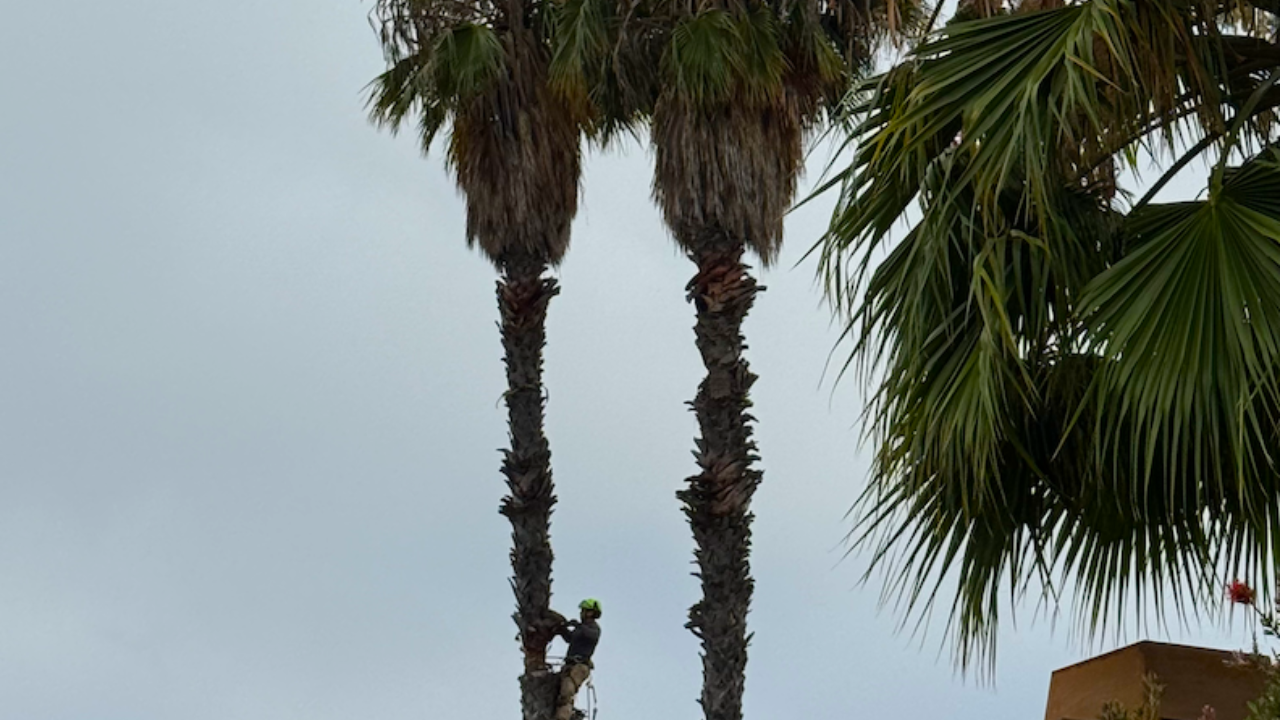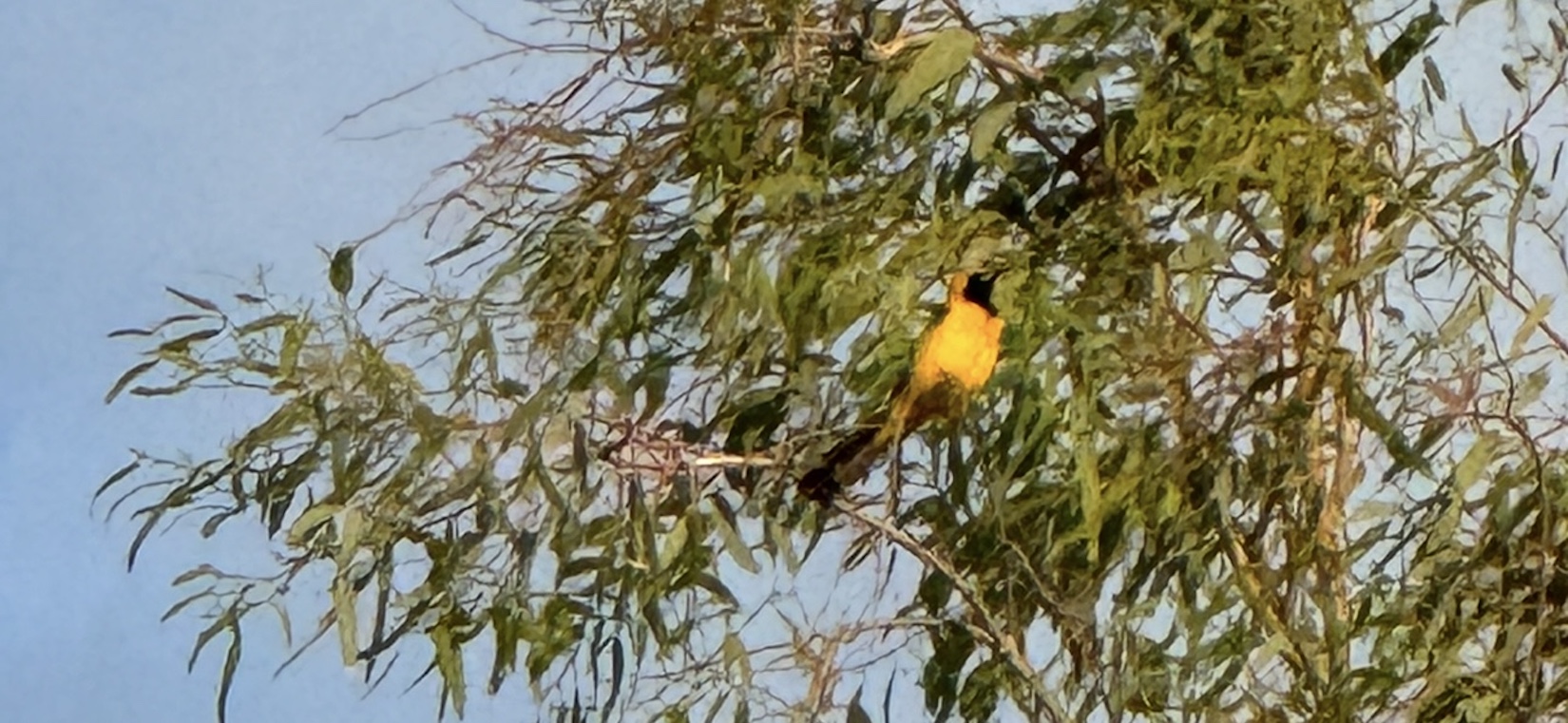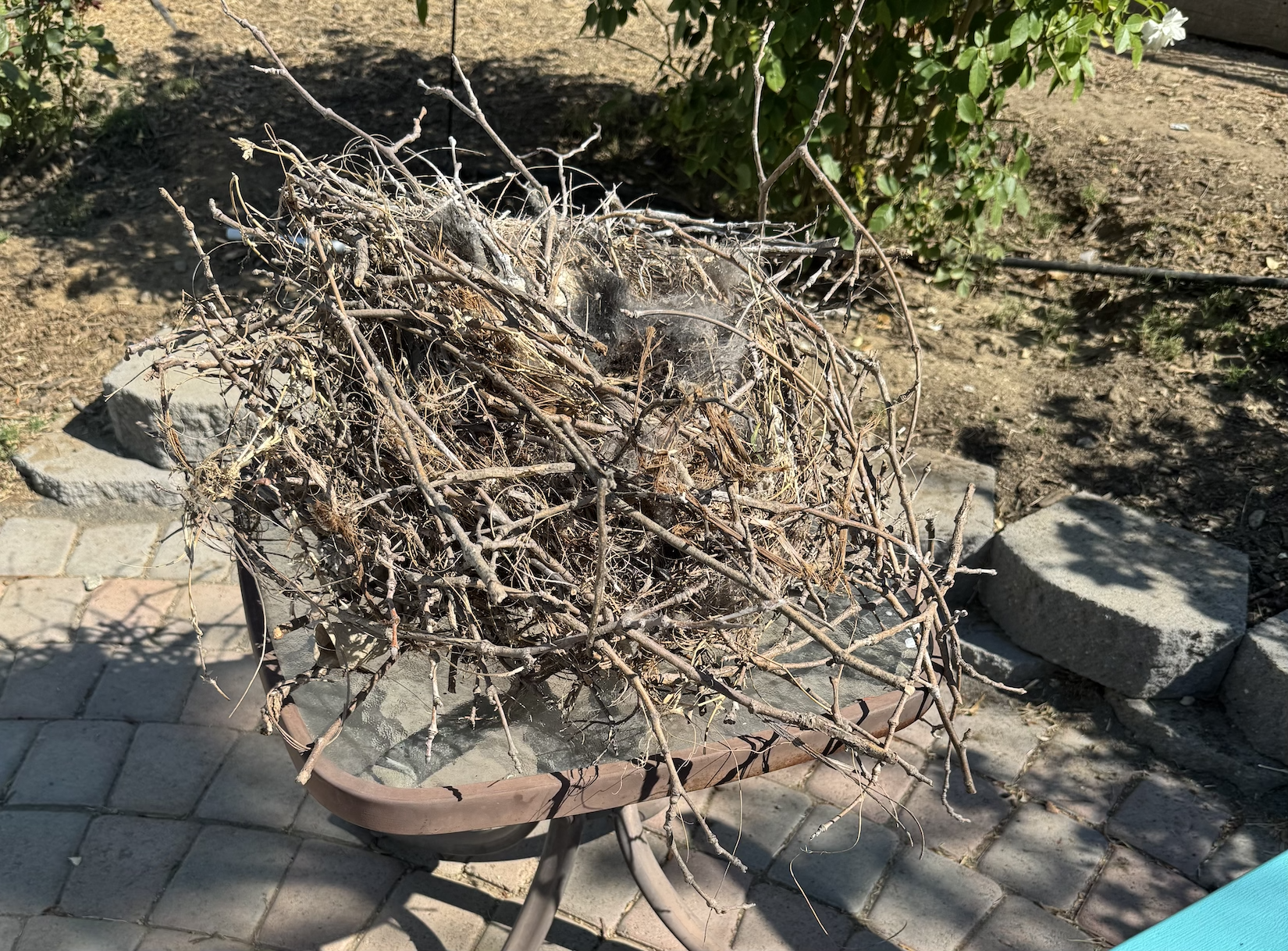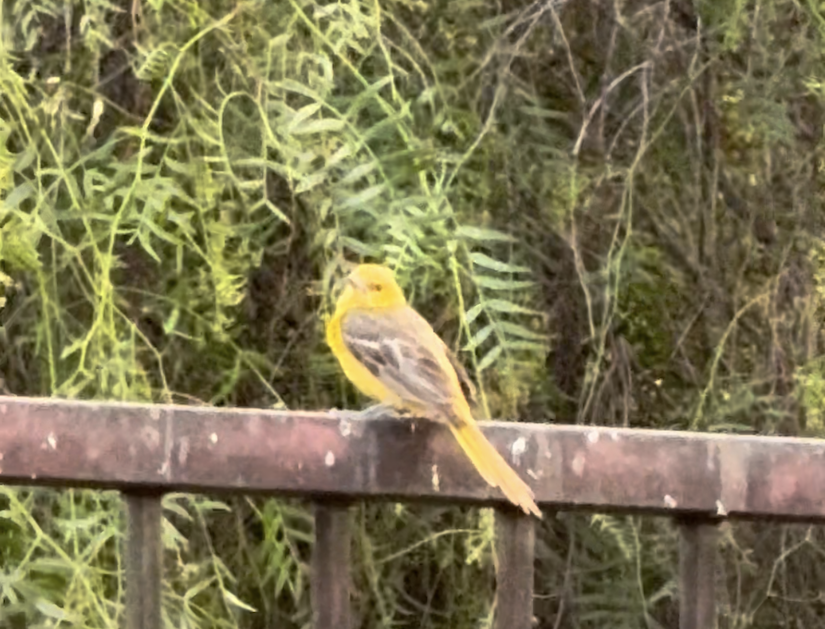When the Trees Come Down: Parenting, Loss, and the Fight to Stay Present
Jul 20, 2025
Every morning for the past year, I’ve had a quiet ritual to help me stay grounded. I step outside to the backyard, sit on the patio, and breathe in nature. There’s something about starting the day with eucalyptus and pepper trees towering over me, finches and sparrows darting through tangled bushes, and red-tailed hawks circling above that gives me just enough of a tether to stay present.
We live along a small ridge, so our neighbors’ yards spill into the hill below. It's wild and overgrown—perfect for rabbits, lizards, squirrels, and a very opinionated crow murder that flies in each morning to screech at the suburbs.
But my favorite guests, my true backyard crown jewels, are the Hooded Orioles.

Each spring, they migrate from Mexico and raise their young in the dead fronds of a tall palm two doors down. In June, I finally convinced them to use my oriole feeder—grape jelly and orange slices. I spent many mornings sipping coffee while watching their bright yellow feathers streak across the sky and laughing at their petty turf wars with the mockingbirds.
My dad, who lives back in Kansas where I was raised, also loves nature and has his own family of migrating orioles in the neighborhood. I've enjoyed sending him photos and taking his advice on how to attract them.
Those mornings are sacred to me. Something small, but healing. Something mine.
Until yesterday morning, when I woke up to the sound of chainsaws.
The palm trees were being cut down. The ones with the oriole nests.
I ran outside. I asked the workers to stop. I explained—calmly at first, then desperately—that these were protected birds, that they had babies, that this was illegal. But no one listened. My neighbor yelled at me for caring more about birds than people. I later learned that she was the one who’d threatened to sue the homeowner if a falling frond ever caused damage. And she’s not wrong—falling dead fronds are dangerous. Removing them was the responsible thing to do.
However, the orioles needed those dead fronds. They built their nests by weaving them into the underside, protected from the elements. Cutting them down rather than waiting just one month for them to return back home destroyed something that didn’t have to be lost. Why am I the only one who noticed or cared? What's wrong with the world?
That’s what it feels like to parent a nonspeaking child. That’s what it feels like to be us.
We find these little corners of peace in a world that barely gives us anything to work with. We fight for presence. We make do with what we can find. And just when we think we’ve found something beautiful, something stabilizing, it gets ripped away.
For me and many of the parents I work with, this isn’t rare—it’s constant. Every joy feels like a fluke. Every attempt at presence feels like a setup for heartbreak. I hear it all the time in my own head: I’m afraid to enjoy anything, because the moment I do, it will disappear.
When you live this life, when you are the full-time caregiver, advocate, communicator, educator, crisis manager, medical sleuth and lifeline for your child, you don't get space to grieve the little losses. You’re expected to stay strong, to be grateful, to “practice self-care” and get over it.
But here’s the truth:
Life as the parent of a nonspeaker is unbelievably hard.
And I mean that literally—when I explain what my day looks like, the decisions I have to make, the lack of anything to look forward to—people don’t believe me. Friends, family and even therapists are so shocked they assume I must be exaggerating. The invalidation of my experience makes the isolation even worse. I stop talking about my needs. Escapism becomes the only safe place left.
And yet, we keep showing up IRL.

The man who cut down the tree said he felt terribly when he found the nest. He told me he has his own family of migrating orioles he enjoys on his property. He carefully retrieved the nest for me during cleanup, and it’s beautiful. It’s enormous, woven from dog hair, bits of insulation, shredded bills, dried petals from my bottlebrush trees (so that's what they were doing in there) and lots and lots of twigs. It’s a work of art. I’ve been inspecting it ever since, fascinated by the choices those little birds made. Perhaps that's my closure.
I don’t have an uplifting ending for this. I still feel like I’m going to walk around with a giant hole in my chest for the rest of my life. But I wanted to write this for anyone else who feels the same way. For the parents who find a quiet moment of joy, only to have it snatched away. For the ones who stopped reaching for joy because it hurts too much to lose.
One more thing I’ve realized, sitting with this grief: when you’re exhausted from caregiving, it becomes nearly impossible to see the good things. I live in California like I dreamed of growing up. We live in a home, not an apartment, where my son can make all the noises he wants. I have a business that actually helps people. I’m lucky to be surrounded by beautiful trees, hummingbirds, and—usually—hooded orioles.
Even the neighbor who had the trees cut down, the one who yelled at me? She’s a caregiver too. Her elderly mother has lived there for over a decade with dementia, oxygen tanks, and regular ambulance rides to the ER in the middle of the night. She’s also raising her granddaughter. Her life is probably heavier than mine. She also watered my plants and trees without needing to be asked when I was the one rushed off to the ER. She's a wonderful neighbor who I'm thankful for. Yesterday I forgot of all that.
That’s what isolation does. It shrinks the world down to just your own pain. If you’re feeling broken today, know this: There is still beauty here. You might have to fight to see it. But it’s still here in the present, even in this brutal, material world, and still worth experiencing.
Nonverbal Autism Homeschool enrollment is currently open!
Stay connected with news and updates!
Join our mailing list to stay updated on Nonverbal Autism Homeschool courses, special events and new blog posts. You'll also receive free curriculum, inspirational messages, autism parenting hacks and more!
We hate SPAM. We will never sell your information, for any reason.



